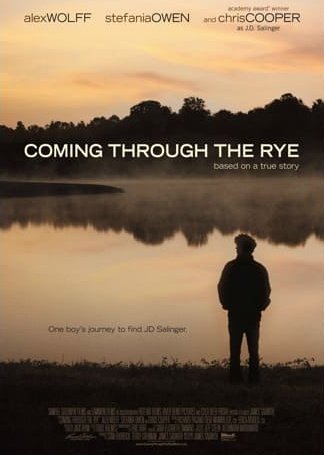Our script writing tips to avoid the slush pile, authored by a professional script reader, tells you exactly how to make your screenplay stand out from the masses. If you've been studying the craft of screenplay writing you know your first 10 pages are critical. As a script reader, I'm hoping the writer has thought long and hard about how to use those pages wisely. But most of you haven't. How do I know? Because I read script after script after script where the story doesn't get started on page 30 let alone page 10. Those first 10 pages they are not a warm up, they are the only chance your script will ever be read even halfway through. And guess what, it's even worse than that. If I'm not hooked on page one or possibly page two, I'm not reading 10 pages, I'm putting it down.
Unfair, you cry. You've got to get to page 52 where there is a brilliant twist. Too late, and here's why. Have you ever flicked through TV channels, watching 10 or 20 seconds of a show before deciding if it's worth sticking around? That's your script on the screen. The way to get your script read can be summed up in four words - Get To The Story. You've heard it before, but what does that mean in practical terms. How do we fine tune your 20 seconds of page time so your reader will put down the remote control? Want me to keep reading your script? Keep reading this article for my top tips.
Back to Top of Script Writing Tips to Avoid the Slush Pile
Script Writing Tips to Avoid the Slush Pile
Tip #1 Don't fill your first page with technical stuff. If your story is set on a different planet with a completely different set of physical laws, do not use your first page to describe it all in detail. But how will the reader know that beings float around and can swim through walls? Start with a scene that shows your characters doing something interesting while floating around and swimming through walls.
DON'T:
Open on an alien planet. The atmosphere is made up of sciencey-sounding stuff which allows the beings of that world to pass through solid objects such as walls. No one walks because the ground is toxic and the species has evolved so they float around instead. Joe & Jane are teenage brother and sister…and so on for half a page of scene setting.
DO:
Joe: (Jane, fresh from her shower, appears through the wall into the kitchen) Ugh, Jane, no one wants to see their sister naked in the kitchen.
Jane: I don't want to be late for the rally (Jane floats through the other wall to her bedroom).
In two lines the reader knows Joe & Jane's relationship, that floating through walls is normal, and there's a rally for something important happening, and we're on our way to the story.
Tip#2 Get your vibrant, complex main character on the page right away. Then show me why I should care about him or her. Notice the word ‘show'. I need to know whose story it is and what their problems are as quickly as possible.
DON'T:
The opening scene shows two people in an office. One asks a question about the title character of the film and they discuss that person. It's one way of providing backstory, but a stronger approach is to show me the title character doing those things instead.
DO:
The opening scene shows a woman running for her life. As a shadowy assailant attacks her she pleads for her life by saying her sick son is at home and needs her. I know what is at stake, I know who I'm rooting for, and why I care about this woman.
Tip#3 Set the tone and clarify the genre so the reader feels comfortable.
When humans encounter something new they try to make sense of it. When you're flicking channels, you want to know whether the show is a comedy vs a vampire epic so you know if it's what you want to watch in that moment. Scripts that are confusing have the reader guessing rather than engaging. Make it clear what type of film it is and start building the right atmosphere.
DON'T: The first three pages show a man working at his job when a fireman comes and asks him to evacuate. The man keeps working and eventually drives somewhere. The next pages show him at a funeral. At this point I don't know if this is a disaster movie, horror movie, biography, love story, and what the heck happened to the fire?
DO: The first page shows a chase and a shooting. Quick cut to the gang clubhouse where a hard looking woman hears a knock on the door. It's the cops. We know this is going to be a gritty, action-packed crime story, and we've already met our under cover officer even though we don't know it yet.
Tip #4 Make your character introductions count. Don't tell me what is normal about them, tell me what is interesting about them.
DON'T: (MAN, early 20's, attractive) talks to (WOMAN, early 20's, attractive). I'm so bored already it hardly matters what these characters say to each other. I dare you to open with a character so different and messy and interesting that I cannot help but wonder why he is there.
DO: If you're writing a love story about attractive young people, that's fair. But even so, tell me WHY they are attractive and interesting. (MAN, blue eyes that twinkle even when he's frowning, clothing says he's clearly color blind) shouts at (WOMAN, blond, fit, blackbelt). Now I'm wondering what's gonna happen.
Tip #5 Know your log line. You'll hear this from me repeatedly, but it is crucial you can explain your story concisely and clearly. If you can't, who can? This is for all those times you tell someone you're a writer and they ask you what you're working on. Because that person might be someone who would read your script, or know someone who would read your script. But again, you've got 20 seconds to get them interested.
DON'T: It's a modern day deconstruction of gender and society blah blah blah. Don't give them your message, give them the story.
DO: Two Native American sisters steal cars for a chop shop in order to raise money to fight the corporation that is polluting their town and killing their families. I can email you a copy right now. Boom!
All of these script writing tips to avoid the slush pile accomplish one simple thing. They keep the reader in the story. You want them to get to page 25 or 50 or 100 without even realizing they got sucked in. It's not easy, but you can help yourself by avoiding the little things that jolt the reader out of the experience. From the small details like a typo to the big ones like a boring scene about chopping broccoli which will get the reader asking questions about the script rather than the story.
Read your first page like you have a remote in your hand and rewrite it until it forces you to stay tuned.
Back to Top of Script Writing Tips to Avoid the Slush Pile
About the Author
Micki McNie is a script reader, film screener, and digital nomad. She reads as a freelancer and for major film festival competitions, as well as being a constant student of story and structure. Her goal of encouraging writers to keep making good art motivated her to start Script Karma, a donation-based coverage service. You can find her at mickimcnie.com and at independent coffee shops around the world.Back to Top of Script Writing Tips to Avoid the Slush Pile
Filmmaker Resources
- All Filmmaker Resources
- Film Production Companies
- Independent Film Logline Examples
- How to Build a Strong Production Team
- Find Free Actors for Independent Film
- Script Writing Tips to Avoid the Slush Pile
- Best Independent Film Websites
- Business Plan Books for Film
- Smartphone Video Rig
- Five Gadgets to Start With Travel Vlogging
- Best iPhone Camera Lens
- Filmmaking Tips Use a Gimbal
FilmProposals - 2026 Financing Toolkits & Bundles
DIY Toolkits, Legal & Finance Service Bundles
See All Financing & Legal Bundles
ALL TIERS INCLUDE DISCOUNTED UPGRADES IF YOU MOVE FORWARD LATER
Gold Toolkit
DIY Templates- Financing Manual
- Financial Projections Template
- Business Plan Templates (Narrative & Documentary)
- Investor Agreement Outline
- Film Budget Template
- Indie Film Pitch Deck
- Custom Indie Film Database
- BONUSES (Dealmaking, Investor Tips, ++ )
- Regular Price $303, Save $124
Gold Toolkit + Financials Bundle
Most Popular- Full Gold Toolkit
- + Professional Sales Projections & Investor ROI (10 Films)
- Regular Price $802, Save $103
Producer's Bundle
NEWEST!- Full Gold Toolkit
- + Professional Sales Projections & Investor ROI -10 Films (Reg $599)
- + Film PPM Investor Agreement (Reg $499)
- + Filmmaker Legal Pack (Reg $129)
- Regular Price $1430, Save $231
While our FilmProposals Bundles & Toolkits will save you hundreds of hours with prewritten text and templates and speed up your learning curve by showing you how to complete complicated financial projections, there is still a lot of information to process. We designed this FREE Film Business Plan Course to be sent once per week to break the process of writing your business plan into manageable pieces, and to keep you accountable and focused.
FilmProposals Tools and Templates
- Film Financing Bundles
- Film Financial Projections Template
- Film Business Plan Template
- Documentary Business Plan Template
- Film Financing and Investor Manual
- Film Budget Template
- Indie Film Pitch Deck
- Film Investor Agreement Outline
- Film Investor Tip Sheet
- Filmmaker Legal Pack
- Indie Film Database
- FREE Business Plan E-Course






